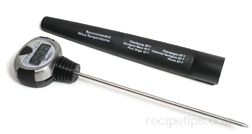To produce a Kosher Wine, much like the production of kosher food, a production facility must adhere to specific manufacturing guidelines and pass inspections for cleanliness, use of ingredients, production procedures, and personnel qualified to be a part of the manufacturing in accordance with Jewish laws. Production facilities are continually inspected and examimed by qualified Jewish individuals, such as rabbis or priests to give their approval to the tools, the equipment, the materials, procedures, and operations in order for the wine to contain the level of purity desired to be labeled as Kosher. Various restrictions are required such as the equipment must be used only for the production of kosher foods; grapes grown by non-Jewish grape producers must be restricted; wine making processes must include specific enzymes, fining agents, and yeasts to produce the wines; animal byproducts such as egg whites or gelatins are restricted from being included to clarify the wines and instead, natural materials such as clay particles are used for the liquid clarification; and grapes must be grown in kosher manner, planted, harvested and processed in accordance with various kosher guidelines.
If wine is to be opened and possibly poured by non-Jewish individuals such as restaurant staff, then it must be certified as "mevushal" wine to retain it's kosher status. A mevushal wine is the designation given to wine that has undergone an additional processing procedure to pasteurize the wine by flash boiling it. It is heated very quickly and then cooled immediately in order to keep the flavor and quality of the wine from being damaged. Passover wines, like mevushal wines also have additional restrictions that are different from the general varieties of kosher wines. For Passover, the wine cannot contain additives such as fructose sweeteners (corn syrup) or legume ingredients. When selecting Kosher Wines, it is best to check the label to determine if the wine is designated as kosher, kosher for Passover, or mevushal so that the proper wine is provided for the specific kosher event.














